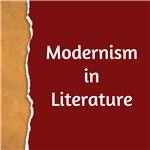Objective: You
might have noticed that here at Shmoop, we love words. And lucky for us,
so do our favorite authors. In this lesson, you'll investigate the
myriad ways in which authors creatively utilize, twist, and manipulate
language to form brilliant images and evoke emotion from the reader.
You'll consider the author's writing style and tone and determine what
kinds of literary devices the author uses to develop them.
Step 1: If you're already a literary device expert, your teacher will let you dive right into the hunt for literary treasures in
The Bluest Eye. Otherwise, let's start with a little refresher.
First
on the docket, vocab time. We know our love of words may not be
universal (the horror!), but we've tried to fun it up a bit for you.
Check out our Shmoopy definitions of these important terms:
Step 2:
Now let's bring these concepts to life by taking a look at a few
literary device treasure troves. We'll start with poems since they're
short and sweet.
What literary devices can you find in these poems?
Step 3: Now that we're all literary device experts, let's take a look at how these kinds of devices are used in
The Bluest Eye. Grab a sheet of paper and turn it into two columns. In one column, list all the literary devices you can find in
The Bluest Eye. In the other column, write down some textual examples of these literary devices. Easy as that.
Once
you have a nice chunk (at least six to eight) of literary devices,
you'll remove the literary device column. Yep, that's right—rip that
paper up,
Dead Poet's Society style. Then trade your paper of
just examples with another student. Can your classmate name the literary
devices based on the examples? That's the challenge.
Once you think you've done it, exchange back to check answers.
Step 4:
Exhausted yet? Just one more step. It's one thing to find the examples,
but now let's put 'em to use. After reviewing the definitions of
writing style and
tone, identify how all the literary devices you just uncovered help contribute to creating this writing style and tone.
To make things a little more exciting, create a
word cloud to convey the overall writing style and tone. Have fun with it!
P.S. Want to see what Shmoop has to say about writing style and tone in this story? We've got you covered:

 Known as "The Lost Generation" American writers of the 1920s Brought Modernism to the United States. For writers like Hemingway and Fitzgerald, World War I destroyed the illusion that acting virtuously brought about good. Like their British contemporaries, American Modernists rejected traditional institutions and forms. American Modernists include:
Known as "The Lost Generation" American writers of the 1920s Brought Modernism to the United States. For writers like Hemingway and Fitzgerald, World War I destroyed the illusion that acting virtuously brought about good. Like their British contemporaries, American Modernists rejected traditional institutions and forms. American Modernists include:
